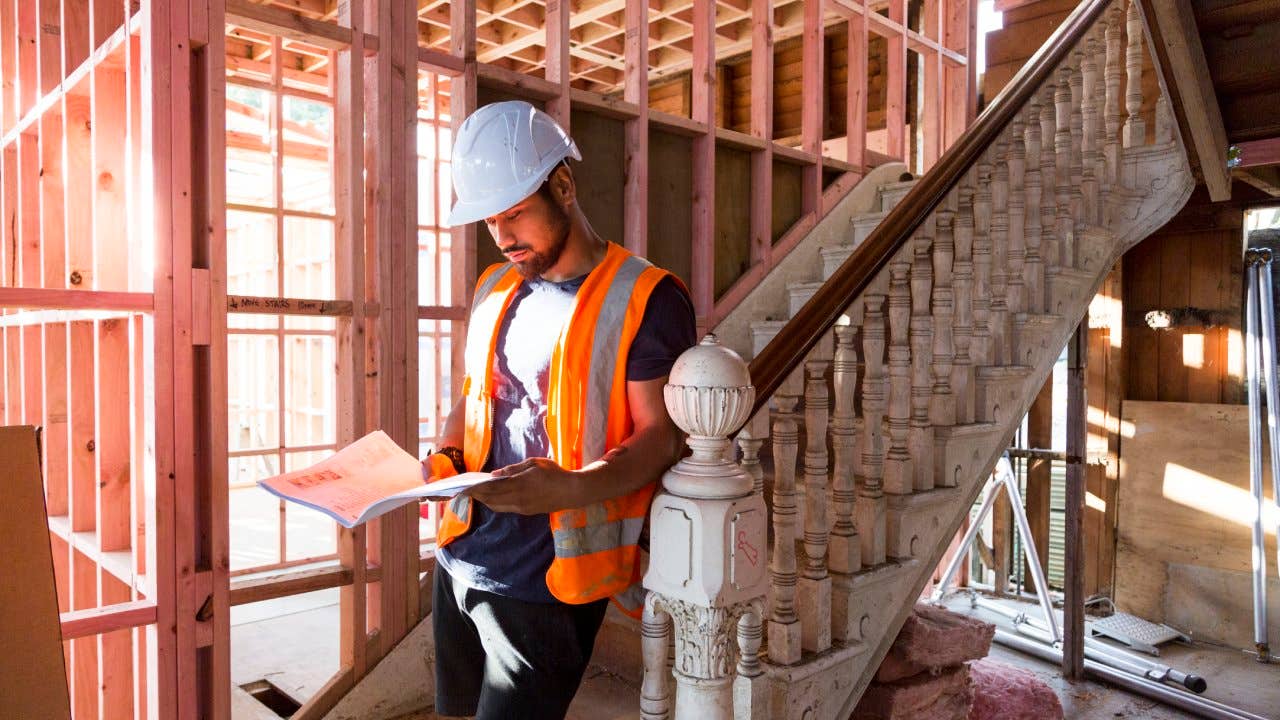Remodeling your basement can significantly increase your living space and property value. But before you install a home theater, guest suite, or home office in that unused space, there’s one essential step you must not skip: understanding the building permits required for your basement remodel.
In this guide, we’ll explain why permits are important, what types you need, how to obtain them, and what happens if you choose to skip this crucial step. Whether you’re in Maryland, Illinois, or any other state, this article will help you confidently navigate the permit process in 2025.
What Is a Building Permit?
A building permit is an official approval issued by your local municipality that allows you (or your contractor) to proceed with a construction or remodeling project. It ensures that the work complies with local building codes, zoning regulations, and safety standards.

Read More: Adding an Egress Window in Our Basement: Cost, Code, and Home Value Benefits
Why Do You Need a Building Permit for a Basement Remodel?
Basement remodeling often involves structural, electrical, plumbing, or HVAC updates—all of which are regulated to ensure safety. Failing to obtain permits can:
- Lead to fines or legal issues
- Create problems during home resale
- Invalidate your homeowner’s insurance
- Force you to redo or tear out non-compliant work
If it changes the structure, systems, or safety of your home—it likely needs a permit.
Read More: Cost vs. Value Project: Basement Remodel (2025 Edition)
What Basement Projects Typically Require Permits?
Here are the most common basement remodeling elements that do require permits:
| Project Type | Permit Required? | Details |
|---|---|---|
| Framing/Walls | Yes | For new walls or removing load-bearing ones |
| Electrical Wiring | Yes | Includes lighting, outlets, new circuits |
| Plumbing Work | Yes | Sinks, toilets, drains, wet bars |
| HVAC Installation | Yes | Ductwork, vents, new units |
| Egress Windows or Doors | Yes | Required for bedrooms in basement |
| Bathroom Addition | Yes | Full or half-baths need plumbing & ventilation permits |
| Insulation | Yes (in some areas) | Especially if finishing exterior basement walls |
| Drywall Installation | Maybe | Varies by location; check with local office |
| Painting & Flooring Only | No | Cosmetic changes typically don’t need permits |
Read More: Exploring the Cost of Basement Waterproofing: What Homeowners Need to Know in 2025
Local Permit Requirements (Examples by State/City)
Maryland
- Egress windows are mandatory for bedrooms.
- All electrical work must be done by a licensed contractor with a permit.
Read More: How Much Does Basement Waterproofing Really Cost? (2025 Guide)
Chicago, IL
- A Basement Remodel Permit (Type II) is required.
- Must meet Energy Code and Ventilation Standards.
Read More: How Much Does Basement Waterproofing Cost? (2025 Guide)
Denver, CO
- Basement remodels involving framing or drywall need a Residential Building Permit.
- Also requires an inspection schedule.
Always check your local Department of Buildings or Permitting Office for up-to-date information.
Read More: How Much Does Basement Waterproofing Cost? [2025 Data & Guide]
How to Get a Basement Remodel Permit (Step-by-Step)
1. Plan Your Project
- Create a detailed design: include layout, plumbing, electrical, materials.
- Hire a licensed architect or contractor if required.
Read More: Cost to Replace Basement Concrete Block Wall (2025 Guide)
2. Submit Application
- Apply online or in-person at your local permit office.
- Include floor plans, scope of work, contractor info.
Read More: Costs of Common Foundation Repairs in Basements: A Homeowner’s Guide
3. Pay Fees
- Fees vary by city and scope. Expect:
- $50–$150 for basic permits
- $300–$1,000+ for full remodels
Read More: Basement Remodeling Pricing Guide: What You Need to Know in 2025
4. Schedule Inspections
- Inspectors will evaluate work during and after completion.
- Common inspections include framing, electrical, and final.
Read More: Finished Basements in New Jersey: Transform Your Space with Expert Renovation
5. Get Final Approval
- Once all work passes inspection, your remodel is officially approved.
Read More: Michigan’s Trusted Basement Experts: Your Guide to Professional Basement Remodeling
How Long Does It Take to Get a Basement Remodeling Permit?
| Permit Type | Average Time to Approve |
|---|---|
| Simple (e.g., drywall) | 1–3 business days |
| Full remodel | 1–4 weeks |
| Projects needing review | Up to 6 weeks or more |
Speed depends on:
- Local office workload
- Completeness of your application
- Whether architectural plans are required
How Much Do Basement Remodel Permits Cost in 2025?
| Project Scope | Typical Permit Fee |
|---|---|
| Minor remodel (no plumbing) | $50 – $250 |
| Full remodel (with bathroom) | $300 – $1,000+ |
| Additional reviews (e.g., zoning, fire) | +$100 – $500 |

Some municipalities base fees on the square footage or project cost.
Read More: Basement Finishing & Remodeling Company: Your Partner in Transforming Unused Spaces
What Happens If You Skip a Permit?
Skipping permits might save you time now, but can cost you big later:
- Stop-work orders
- Fines or re-inspection fees
- Tearing out completed work
- Issues with appraisals and selling
- Voided home insurance claims
Read More: Basement Remodeling & Renovation Ideas: Transform Your Lower Level into a Functional Masterpiece
Permit vs. Inspection: What’s the Difference?
- Permit: Legal permission to begin the project.
- Inspection: A city-approved professional checks that the work is done safely and to code.
You typically need multiple inspections during the remodel:
- Rough-in (for framing, wiring, and plumbing)
- Final inspection (after walls and finishes)
Read More: Basement Remodeling in Maryland: Maximize Your Living Space & Home Value
Who Pulls the Permit—You or the Contractor?
- If you hire a contractor, they usually obtain the permits.
- If you’re doing the work DIY, you must apply yourself—and may need to pass a homeowner’s exam in some cities.
Tip: Never hire a contractor who asks you to pull the permit to avoid licensing responsibility.
Read More: Basement Finishing & Remodeling in Bethesda, MD: Transform Your Home from the Ground Up
Final Checklist: What to Prepare for a Permit Application
Detailed floor plans
Electrical and plumbing layout
Contractor license and insurance
Scope of work and estimated cost
Proof of property ownership (sometimes)
Final Thoughts: Permits Protect Your Investment
While permits may feel like a hassle, they’re there to ensure your basement remodel is safe, code-compliant, and durable. Whether you’re finishing a guest suite or building a full basement bar, understanding the permit process is essential for peace of mind and resale value.
Bottom line: Don’t skip the permits—get them right the first time.
